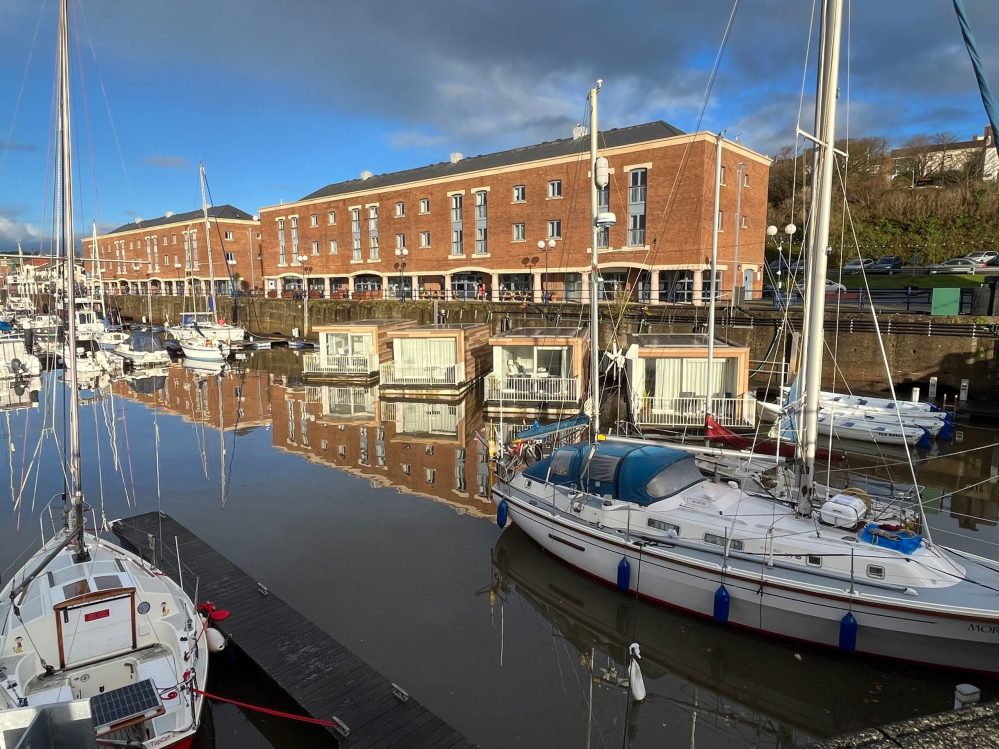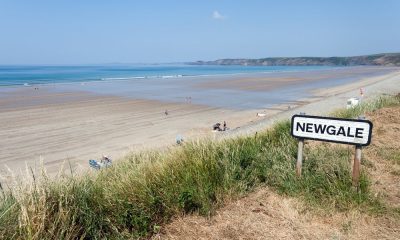Entertainment
Government to review ‘dynamic pricing’ in wake of Oasis ticketing outrage

THE UK GOVERNMENT has announced a comprehensive review of the ticket sales market following widespread backlash over the inflated prices of tickets for the recently announced Oasis reunion tour. The surge in prices, driven by dynamic pricing models, has left many fans feeling excluded from the chance to see their favourite band perform live, with ticket prices more than doubling from their face value.
Culture Secretary Lisa Nandy expressed her disappointment over the situation, describing the inflated prices as “incredibly depressing.” She highlighted the Government’s commitment to addressing the issue and ensuring that fans are not exploited by the system. Nandy stated that the review will focus on the transparency and use of dynamic pricing, particularly the technology behind queuing systems that appear to incentivise such practices.

“After the incredible news of Oasis’ return, it’s depressing to see vastly inflated prices excluding ordinary fans from having a chance of enjoying their favourite band live,” Nandy remarked in a statement. “This Government is committed to putting fans back at the heart of music. We will include issues around the transparency and use of dynamic pricing, including the technology around queuing systems which incentivise it, in our forthcoming consultation on consumer protections for ticket resales.”
The controversy erupted when fans attempting to purchase tickets for the Oasis reunion tour found themselves faced with prices that skyrocketed from the initial £75.00 to as much as £498.00 on Ticketmaster. The surge pricing model, also known as dynamic pricing, adjusts ticket prices based on demand, leading to what many fans have described as “sickening” and “scandalous” increases.
Crundale resident Gavin Young said: “I came into work on Saturday by 8.30am to use the office computers to buy my tickets. I was put into a queue of 274,677 people. After 8 hours of waiting at my desk I got to number one in the queue, but as soon as I got to the checkout the system was trying to charge me £498 for ‘budget seating’ for tickets that were initially advertised at £75.00 each.
“This is despite the band saying that tickets being sold over ‘face value’ would be cancelled.
“I feel devastated because I am a massive fan of the band, and one of those lucky enough to have seen Oasis live in Knebworth on August 11, 1996.
“Admittedly my mate and I, just 17-years-old at the time got given free tickets by a mystery woman walking out of the VIP entrance back stage, whilst we were trying to sneak in.
“We doubt that we would have the same luck this time around.”
One prominent figure affected by the pricing surge was Government minister Lucy Powell, who revealed that she had paid more than double the original quoted price for tickets to an Oasis show. Powell, the House of Commons leader and Lord President of the Council, purchased two tickets for £350 each for the Heaton Park concert in July, which had originally been priced at £148.50, excluding a booking fee. Speaking to BBC Radio 5 Live, Powell admitted that while she does not “particularly like” surge pricing, it reflects how the market operates. However, she emphasised the need for transparency, stating, “You’ve absolutely got to be transparent about that so that when people arrive after hours of waiting, they understand that the ticket is going to cost more.”
Ticketmaster, the platform where the tickets were sold, has defended its role in the pricing controversy, clarifying that it does not set the prices. According to the company, ticket prices are determined by the “event organiser,” who prices the tickets according to their market value. Despite this defence, many fans were left frustrated, not only by the inflated prices but also by technical issues on the Ticketmaster website, which led to some being incorrectly labelled as bots and missing out on tickets altogether. However, Ticketmaster maintained that its website did not crash and advised customers to clear their cookies and use only one tab when attempting to purchase tickets.

The Oasis reunion tour, marking the end of a decade-long feud between brothers Noel and Liam Gallagher, quickly sold out all 17 of its announced shows, including two in Cardiff. The overwhelming demand and the issues with ticketing have reignited debates over the fairness of the secondary ticket market and the ethics of dynamic pricing.
Adding to the concerns, secondary ticket seller Viagogo listed a seat at Wembley for July 25 at an eye-watering £5,289. The platform has defended its practices, with its global managing director stating that it is the fans who set the prices. Viagogo also reiterated that resale is legal in the UK and that fans are protected by a guarantee that they will receive their tickets in time for the event or get their money back.
In response to the controversy, Oasis has issued guidance to its fans, advising them to use only Ticketmaster and Twickets for reselling tickets and to list them at “face value” to avoid cancellation by the promoters. The band’s promoters, Manchester-based SJM Concerts, Irish MCD, and Scottish DF Concerts & Events, have yet to comment on the matter.
Meanwhile, Education Secretary Bridget Phillipson has also weighed in on the debate, linking the issue of dynamic pricing to broader concerns about pricing practices in other sectors, such as travel companies and airlines, particularly during school holidays. Phillipson acknowledged that dynamic pricing is an area that requires further consideration, especially given its impact on families. However, she stressed the importance of ensuring children attend school regularly, warning that missing days at the start of the term can set a negative pattern for the future.
In the wake of the public outcry, fans have taken to Change.org to demand immediate action. Within the last 48 hours, over 16 petitions have been launched on the platform, collectively amassing thousands of signatures. These petitions primarily target Ticketmaster, calling for an end to what many fans see as exploitative practices.
One petition, echoing the sentiments of many, reads: “Their monopoly on the sale of tickets has allowed this greed to go unchecked for years. It’s time it was banned!” Another frustrated fan added: “It isn’t fair for us to have to pay more just because the event we wish to attend is in higher demand. Ticketmaster’s dynamic pricing strategy unfairly exploits loyal fans who simply want to enjoy an event.”
The wave of petitions comes amidst a broader backlash against dynamic pricing, which has overshadowed the excitement surrounding Oasis’s much-anticipated return. Fans have also called on the band to add more tour dates or to consider broadcasting performances through national broadcasters to accommodate those unable to secure tickets.
Sylvia Rook, Lead Officer for Fair Trading at the Chartered Trading Standards Institute (CTSI), said: “We are aware of the fact that many consumers have complained that the tickets they were offered, after having queued for several hours online, ended up costing substantially more than the originally advertised prices that were released at the end of last week.
“Whilst dynamic pricing is an accepted practice for holidays, flights and taxis, the difference here is that consumers are informed of the price before they decide to make a purchase. In this case, the public were given a price for tickets, and were not informed until they finally got to the front of the queue, that the price had increased. This undoubtedly meant that many consumers have overreached and ended up spending much more than they originally intended. Many other consumers ended up disappointed after deciding not to proceed to pay the vastly increased prices. One CTSI member who queued for 5 hours was faced with paying £348 for a standing ticket at Wembley when he was expecting to pay £151.
“Dynamic, or fluid pricing, is not specifically prohibited by consumer protection law; the important factor is that consumers are not misled by the indicated price. It is a breach of the Consumer Protection from Unfair Trading Regulations 2008 if a trader misleads consumers regarding the price of goods and services, if that causes the average consumer to take a different ‘transactional decision’. In this case many consumers would not have joined the queue had they known that the price would have increased by the time they were able to purchase, and many fans could not afford the increased price.
“Ticketmaster have said the tickets were ‘in demand’ tickets, which is why the price was higher but, to ensure consumer legislation is complied with, all relevant information about the price should have been given to consumers before they joined the queue. CTSI is also aware of the vastly increased price of tickets on resale sites, meaning that genuine fans are unable to buy tickets which may have been purchased by bots.
“Anyone who feels they were misled by the promotion of the Oasis tickets and the ticket platforms promoting them is encouraged to report the matter to Trading Standards by calling the Citizens Advice Consumer Helpline on 0808 223 1133 if in England and Wales. In Scotland, contact Advice Direct Scotland on 0808 164 6000, or if in Northern Ireland, call Consumerline on 0300 123 6262.
“We will be working with the government to see how consumers can be better protected with regard to the sale of event tickets.”
This isn’t the first time dynamic pricing has come under fire. In February, a Change.org petition started by user Allister Thompson garnered nearly 50,000 signatures, demanding that the practice be banned. Although this earlier petition did not lead to immediate action, there is renewed hope among concert-goers that the current Government review, announced by Culture Secretary Lisa Nandy, might finally address the issue.
As the Government prepares to launch its review, fans and industry stakeholders alike will be watching closely to see whether new regulations will be introduced to curb the excesses of the current ticketing system. The aim is to create a fairer marketplace that puts fans first and protects them from the exploitative practices of touts and price surges, ensuring that live music remains accessible to all.
Entertainment
Radio 3 celebrates Easter with live broadcast from St Non’s Chapel

A musical pilgrimage to one of Wales’ holiest sites
BBC RADIO 3 will mark Easter 2025 with a special series of live broadcasts exploring themes of music, landscape, and pilgrimage—culminating in a live Easter Sunday programme from St Non’s Chapel in Pembrokeshire.
The broadcast, part of Easter: A Seasonal Journey, airs live on Easter Sunday morning (April 20), with presenter Sarah Walker joined at the ancient cliffside chapel—believed to be the birthplace of St David, the patron saint of Wales—by renowned musicians including harpist Mared Pugh-Evans, the official harpist to His Majesty the King, and Filkin’s Drift, the popular Welsh folk duo.
Set just metres from the sea near St Davids, the location provides a powerful backdrop for a programme that explores the spiritual and cultural resonance of Pembrokeshire’s rugged coastal landscape. The event follows a Holy Saturday broadcast from the island of Iona in Scotland.
The live programme runs from 9:00am to 12:00pm, and will include music, interviews and reflections from this iconic Pembrokeshire site.
Other highlights of Radio 3’s Easter programming include:
Choral Evensong from Newcastle Cathedral
Sunday 20 April, 3:00pm – 4:00pm
A special Easter Day service featuring celebratory music by Howells, Paulus, and Vaughan Williams.
Record Review of the 21st Century
Monday 21 April, All day
A day-long celebration of the best classical recordings from the past 25 years. Host Andrew McGregor is joined by guest contributors, including celebrity classical fans Stephen Fry, Cathy Newman, and John Suchet. The day concludes with a full performance of Mahler’s Resurrection Symphony (7:30pm).
Located on the Pembrokeshire Coast Path near St Davids, St Non’s Chapel is one of the oldest Christian sites in Wales. Tradition holds it to be the birthplace of St David, Wales’ most revered saint. Today, the chapel ruins remain a place of quiet pilgrimage, with sweeping views over St Brides Bay.
Entertainment
Join TV and radio presenter Hester Grainger live at the Torch

THIS June, the Torch Theatre welcomes ADHD coach, speaker and former Wright Stuff presenter Hester Grainger to the stage with her powerful and uplifting show, ADHD: Unmasked.
Expect an evening of open conversation, laughter, and refreshingly honest insights into life with ADHD. In a supportive and inclusive space, Hester invites everyone—whether living with ADHD, supporting someone who is, or simply curious—to share stories, connect, and feel seen.
A well-known voice in the neurodivergent community, Hester is a regular podcast guest and media contributor. Her appearance on ADHD Chatter with Alex Partridge went viral, with clips from the episode racking up over 22 million views.
ADHD: Unmasked is an interactive, dopamine-filled evening where Hester shares how to embrace a fast-paced mind, practise self-compassion, and tap into the strengths of neurodiversity. She’ll also speak candidly about family life—raising two autistic/ADHD teenagers and living with her autistic/ADHD husband—as well as navigating ADHD in the workplace, friendships, relationships, and late diagnosis.
Audience participation is welcome, with opportunities to ask questions throughout. Whether you’ve received a diagnosis or are just starting your journey, this event offers connection, laughter, and a sense of belonging. You’ll leave feeling empowered, informed—and most importantly—reminded that you are not alone.
Hester began her media career on Channel 5’s The Wright Stuff, going on to work with Loose Women and Today with Des and Mel. She has featured on BBC Radio 2, Radio 4, Radio 5 Live, and hosted her own show on BBC Radio Berkshire.
She has appeared on leading podcasts such as ADHD Chatter, The Hidden 20%, and ADHD Women’s Wellbeing Podcast, and her writing has been published by HuffPost, Evening Standard, Reader’s Digest, and Arabian Business.
Alongside her husband Kelly, Hester co-founded Perfectly Autistic, a neurodiversity consultancy providing training, talks, and coaching to support neurodivergent employees. Both were diagnosed with ADHD in their forties, after Kelly’s earlier autism diagnosis.
Hester says: “I’m so excited to tour the UK talking about ADHD—something I’m truly passionate about. Being diagnosed in my forties finally gave me the answers I’d been searching for my whole life. With growing awareness, so many people have questions and want to understand more. This evening will be fun, entertaining, and honest—and nothing’s off limits.”
ADHD: Unmasked comes to the Torch Theatre on Friday 6 June at 7:30pm.
Tickets: £26
Book online at www.torchtheatre.co.uk or call the Box Office on (01646) 695267.

Entertainment
Easter at Milford Waterfront: Family fun with chocolate trails, markets, and more

MILFORD WATERFRONT will be bursting with Easter fun this April as it hosts a variety of free, family-friendly activities to celebrate the season.
Over the weekend of Saturday 5 and Sunday 6 April, a spring-themed market will take place from 10:00am to 4:00pm, offering seasonal treats, crafts, and local produce. Children can also meet Rascal the Easter Bunny, who will be making a special walkabout appearance on Saturday (Apr 5) from midday until 2:30pm.
On Wednesday 16 April, families are invited to visit Milford Haven Museum to discover the town’s rich maritime history. Afterwards, youngsters can collect a free Easter trail map and set off on a chocolate-themed treasure hunt around the waterfront’s shops and attractions. Completed trails can be exchanged for a small Easter egg. More details are available at www.milfordwaterfront.co.uk.
Throughout the Easter season, visitors can indulge in seasonal delights from a range of independent businesses, including artisan chocolates at Trwffl and Dilly’s, or natural skincare gifts from Akamuti. The waterfront is also home to a selection of boutique clothing and gift shops—perfect for finding something special this spring.
Adventurous visitors can make the most of the season by getting out on the water, with Milford Beach Activity Centre offering stand-up paddleboarding and kayaking experiences. And for those looking to dine out, the waterfront’s many restaurants will be unveiling their new spring menus, featuring locally sourced seafood and family favourites with marina views.
Stay by the sea this Easter
Right at the heart of the action is Tŷ Hotel Milford Waterfront, which is offering a special Easter Escapes bed and breakfast deal. Guests can enjoy on-site family activities such as oversized board games, cinema screenings, and an Easter trail. Standard rooms for two start from £89 per night, with family rooms from £131 per night, including breakfast. Offer valid for stays between 4–27 April. Book at www.ty-hotels.com.
-

 Health7 days ago
Health7 days agoSenedd backs ‘buy-one-get-one-free’ ban amid obesity crisis
-

 Charity6 days ago
Charity6 days agoEmergency services unite for charity at Pembroke Dock Fire Station
-

 Sport6 days ago
Sport6 days agoKildunne hat-trick rips Wales apart in record-breaking Six Nations clash
-

 Community6 days ago
Community6 days agoTenby comes alive with eccentricity as Steampunk Festival returns in style
-

 Business7 days ago
Business7 days agoThe White Hart Inn, St Dogmaels, set to make changes
-

 Politics7 days ago
Politics7 days agoWelsh ministers ’embarrassed’ over Crown Estate devolution
-

 Politics7 days ago
Politics7 days agoPembrokeshire 28-day camping rule could be changed in May
-

 Community7 days ago
Community7 days agoNRW criticised over ‘very little empathy’ on future of visitor centres




































